Gaza in dire need of medical assistance
The World Health Organization has called for quick action to restore the health system in Gaza, which has been devastated by weeks-long Israeli bombardment.
The organization warned more people could die from diseases than bombings in Gaza if the system is not put back on its feet rapidly.
Israel has repeatedly bombed hospitals in Gaza throughout its brutal war on Gaza.
After nearly fifty days, Israel finally agreed to a ceasefire. This resulted in the release of Palestinian prisoners from Israeli jails, and brought much joy and happiness to Palestinians in the Gaza Strip and the occupied West Bank.
But after weeks of relentless Israeli attacks on the Gaza Strip concerns have been raised about the health situation.
The World Health Organization has warned that more people could die from diseases than from bombings in the Gaza Strip if the health and sanitation systems are not repaired.
Surely we will see more people dying from disease than we are even seeing from the bombardment if we are not able to put back this health system and provide the basics of life food, water, medicines, and of course, fuel, to operate the hospitals.
Margaret Harris, WHO Spokesperson
Critical Infrastructure in the besieged territory has been crippled by fuel and supply shortages and targeted attacks on hospitals and UN the facilities since Israel launched strikes on Gaza on October the seventh.
All key sanitation services have ceased operating in Gaza, which raises the prospect of an enormous surge of gastrointestinal and infectious diseases among the local populations, including cholera.
For the 2.3 million residents of Gaza, half of whom are children, finding drinkable water has become close to impossible. The WHO has recorded more than 44,000 cases of diarrhea and 70,000 acute respiratory infections, but the actual figures may be significantly higher.
Diarrhea increased by 45 times compared to the same period last year, and other diseases, from respiratory infections to hygiene issues, such as lice infestations, have also risen.
Almost three quarters of hospitals in Gaza and two thirds of primary health care clinics have shut down because of damage from hostilities or lack of fuel.
No medicines, no vaccination activities, no access to safe water and hygiene, and no food.
We saw a very high number of cases of diarrhea among infants.
And again, there was no treatment available for them. You know, if you have a child with diarrhea, you need to give them rehydration in order to keep them (alive).
Margaret Harris, WHO Spokesperson
The health needs of the population of Gaza have increased dramatically. But they are now being serviced by 1/3 of the hospitals and primary care clinics and with severe overcrowding; the risks are increasing for epidemics. of respiratory tract infections, acute watery diarrhea, hepatitis, scabies, lice, and other disease(s).
Tedros Adhanom Gherbreyesus, WHO Director General
Health facilities in the Gaza Strip have borne the brunt of Israel's brutal war. Officials have described the situation in northern Gaza as catastrophic, amid a lack of medicine and fuel.
The situation is very difficult, the patients, the injured and the martyrs are lying on the ground. The medical staff is not enough and there are no treatments.
My brother is injured and his condition is very difficult. We wait all day for treatments and medications.
There are no medicines or medical equipment.
Brother of injured Gazan
All hospital beds are completely full resulting in the wounded being treated and left on the ground. Experts warn that the humanitarian crisis in the strip will deepen rapidly with Israel restarting its bombing campaign of Gaza, whose population have been weakened by almost two months of attacks.
UN officials have warned that alleviating the crisis requires the urgent entry of additional aid and supplies in a smooth, predictable, and, continuous manner, in order to lessen the unbearable suffering of Palestinians in Gaza.
Despite the temporary truce agreements between Israel and Hamas, officials in Gaza say no fuel had arrived for generators at hospitals in the north of Gaza. Left without fuel, the territory could not pump clean water, or clear waste accumulating in the streets, warning of a potential public health catastrophe.
Pursuant to the health status in the northern Gaza Strip, only three hospitals are still operating, but they cannot cover the health requirements inside the Gaza Strip as these hospitals are small, and there are 900,000 people left.
In addition, the health situation in the northern Gaza Strip is currently desperate because of the inaccessibility of medical aid and fuel to the hospitals in the north.
Dr, Ashraf Al-Qudra, Gaza Health Ministry, Spokesperson
The United Nations Children's funds is also working on creating safe places for children, but it needs a longer break in the fighting to heal.
Threats to children are very much from the air and now very much on the ground. He was terrified, as a medical professional, in terms of the disease outbreak that is lurking here and how that will devastate children, whose immune systems, and lack of food, already is making them perilously weak.
Again, anecdotally, as a non medical professional when I'm in hospitals, it's children with wounds of war and it's children with gastro and who was sick everywhere. and I meet a lot of parents who are medical professionals, or at least have master's degrees, they know exactly what their children need.
They don't have access.
James Elder, UNICEF Spokesperson
Meanwhile, a UN report reveals Israeli bombardment has destroyed or damaged 60% of homes in the besieged territory.
In Gaza City, North Gaza specifically, intense bombing has resulted in damage to over 50% of all buildings. The report said the missile strikes have also caused widespread damage to roads and essential infrastructure, such as power systems and distribution networks as well as water supply equipment.
VIDEO | Press TV's news headlines
Senior Russian general shot and wounded in Moscow: Officials
UK ordered in 'milestone' court ruling to pay $570 million for colonial-era massacre
VIDEO | Defying the rubble, Gaza opens its first face-to-face school since start of war
‘Ready for next round’: Million-man rally in Yemen backs Gaza, resistance
FM Araghchi departs Muscat for Doha following nuclear talks with US
Israeli keeps killing more Palestinian civilians in Gaza amid relentless ceasefire violations
Aliyev: Azerbaijani territory will not be used for threats against Iran


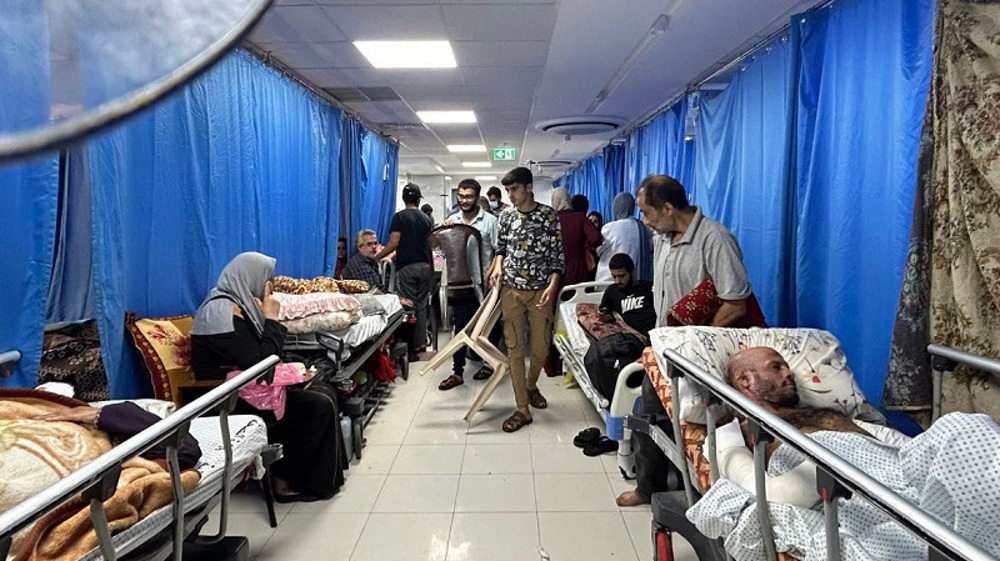
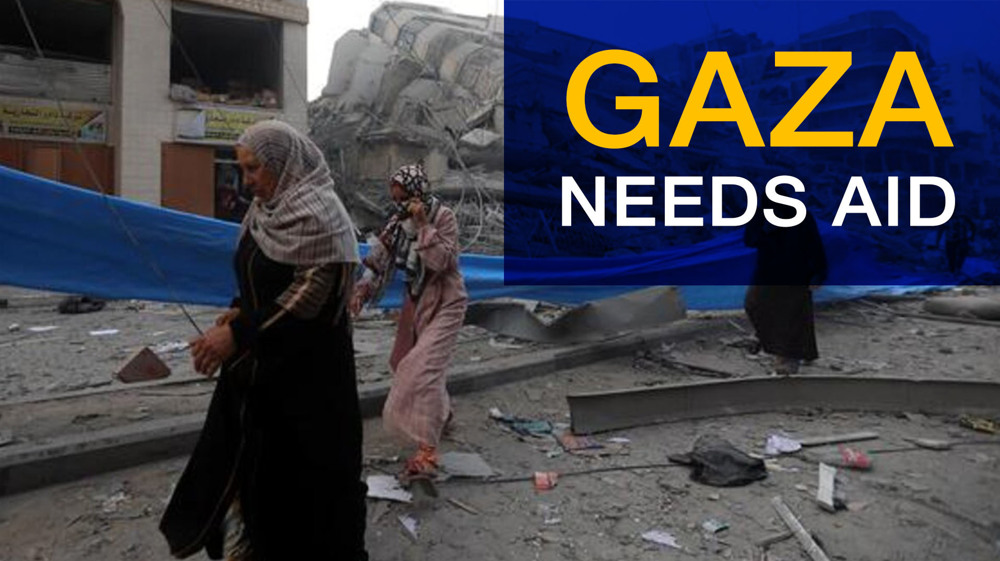
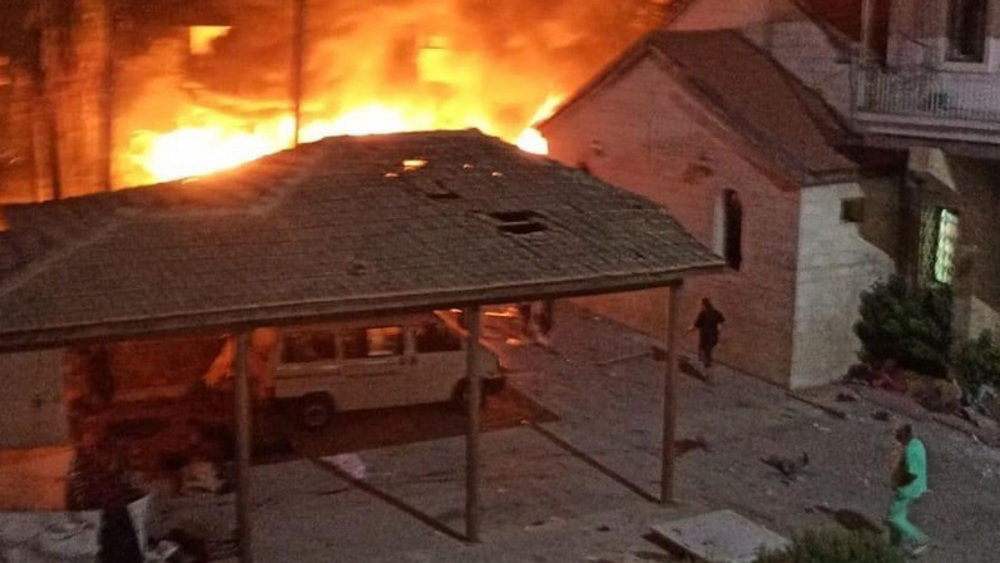
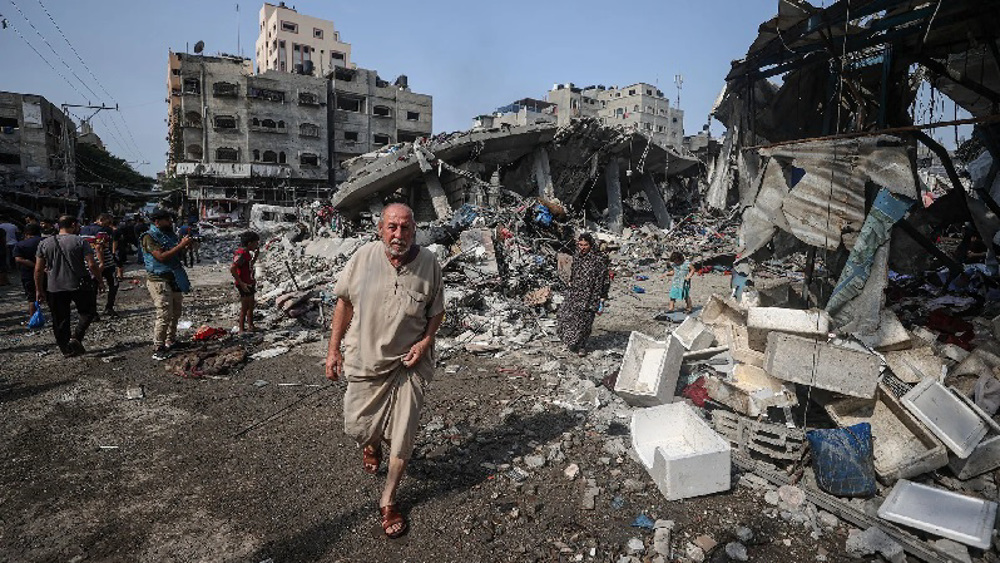
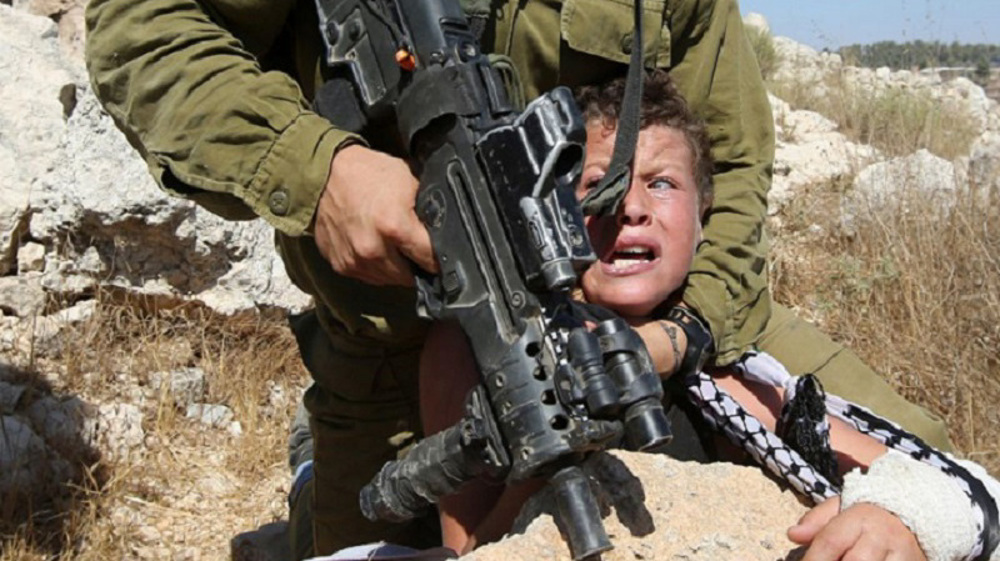
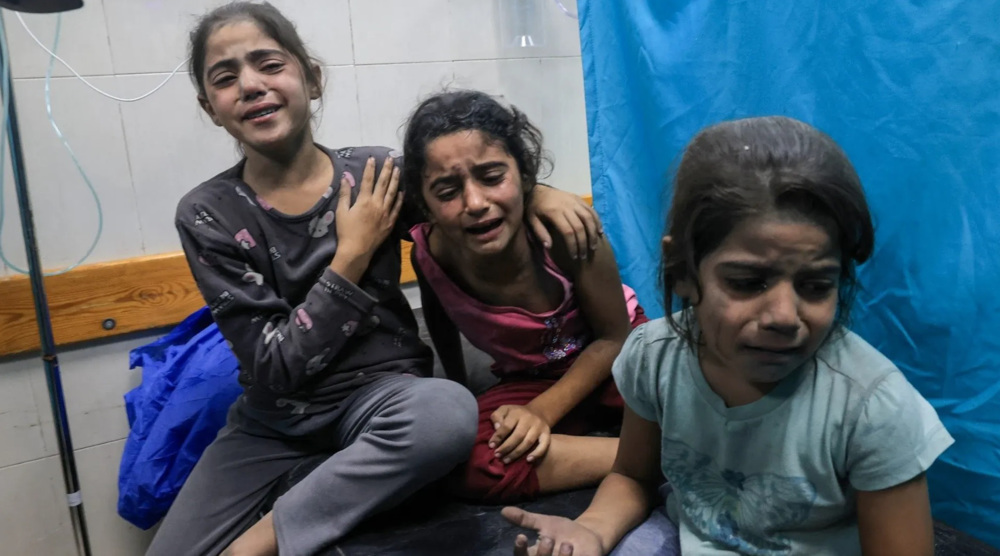


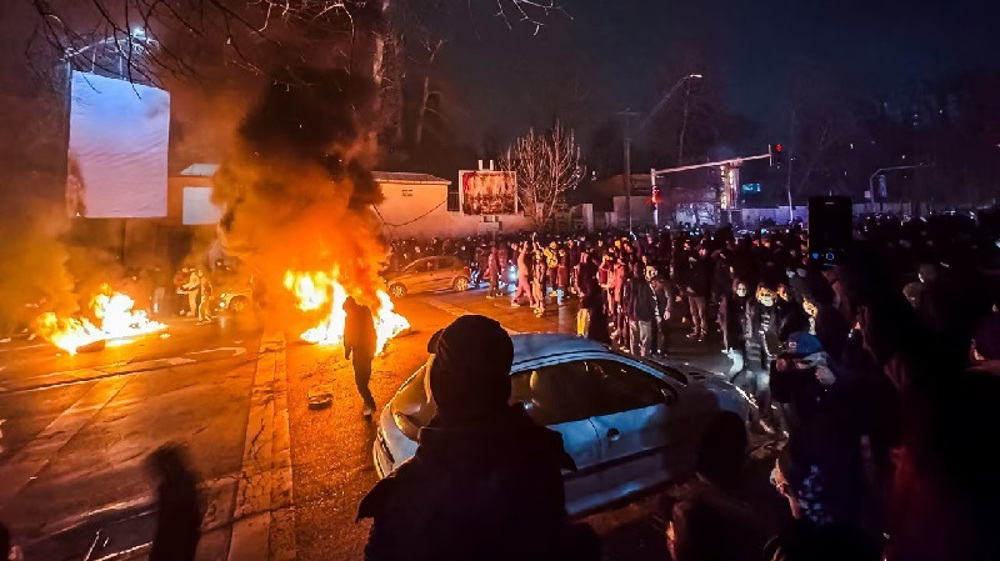



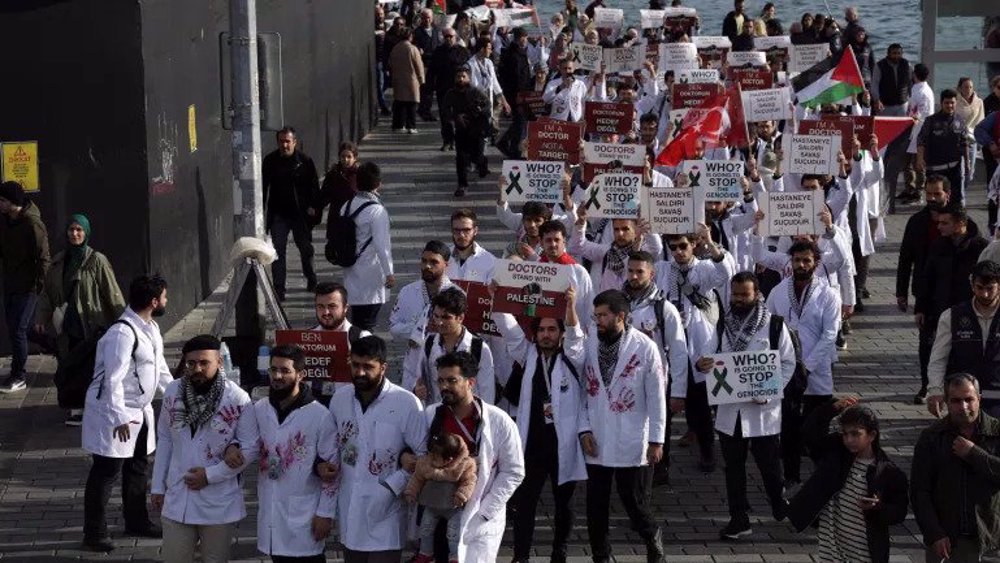
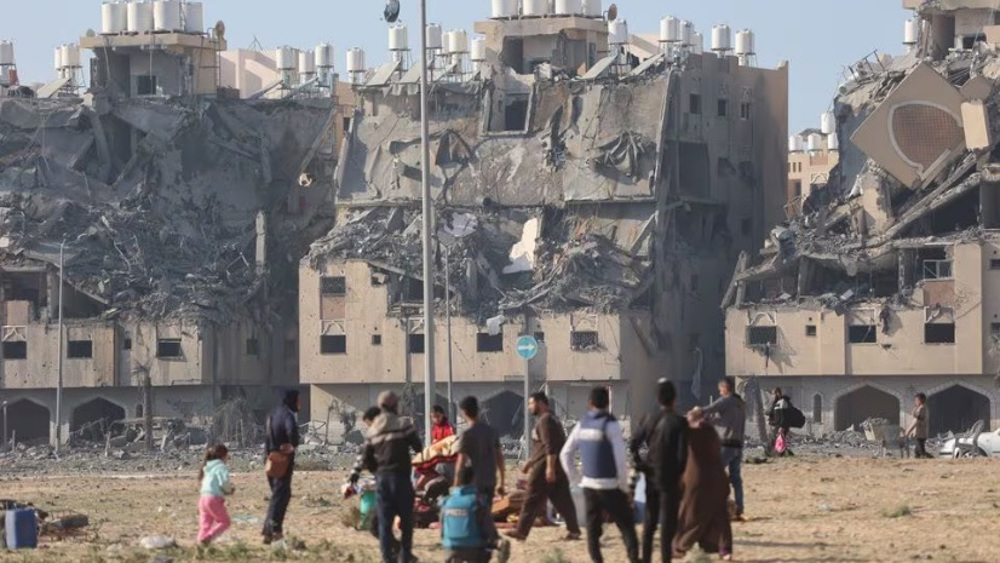
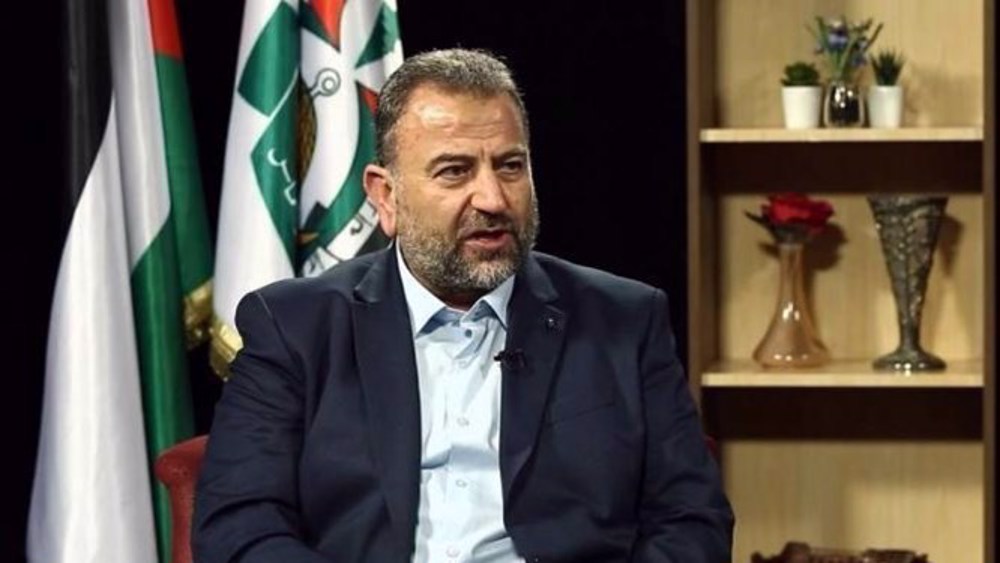
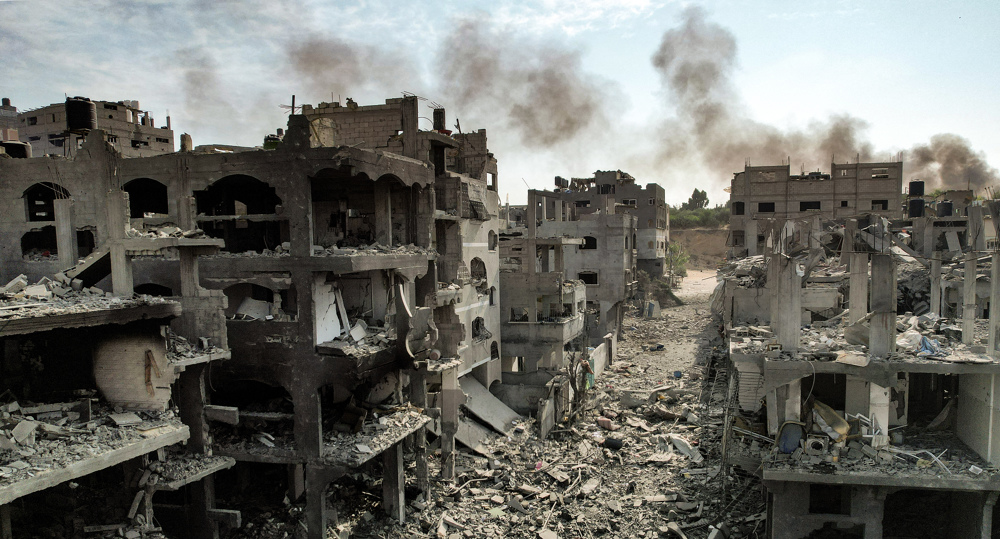
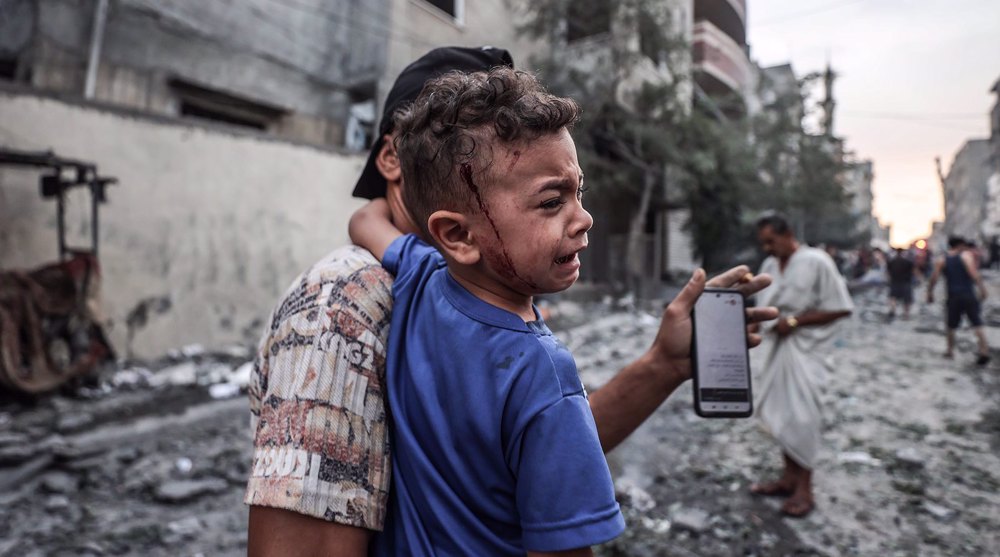
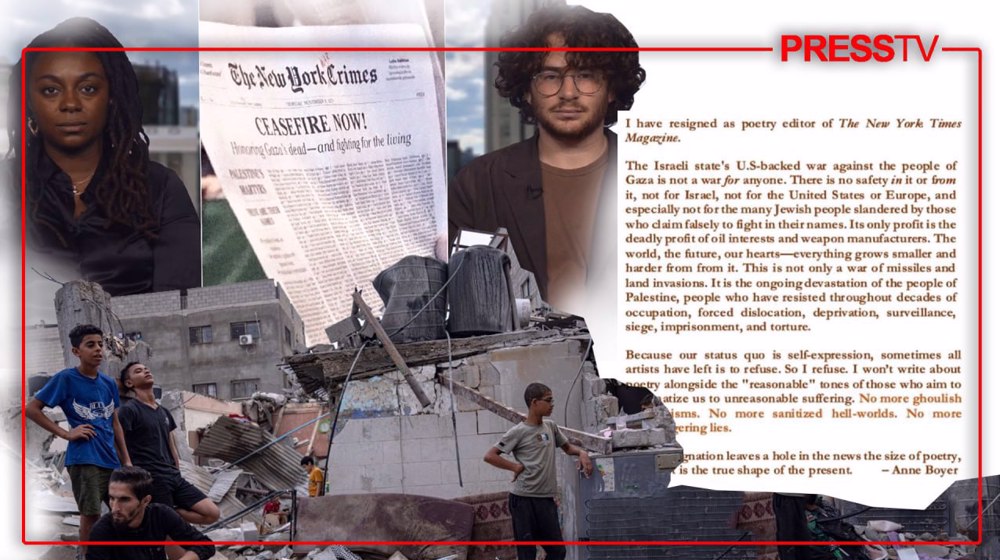
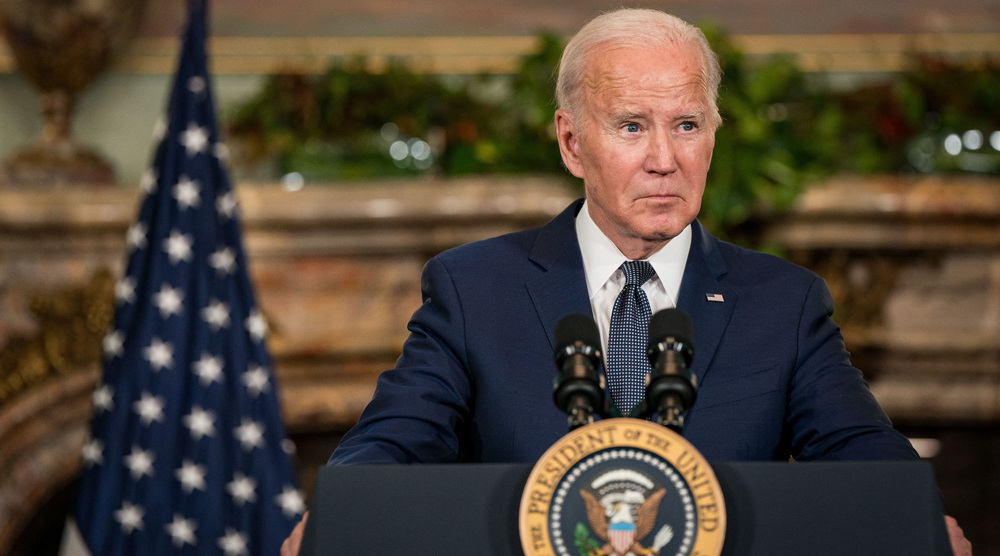

 This makes it easy to access the Press TV website
This makes it easy to access the Press TV website